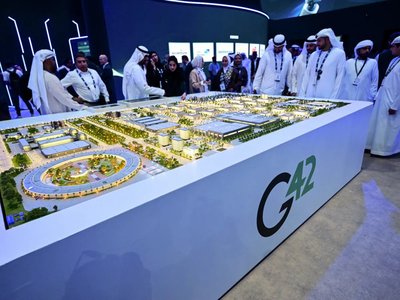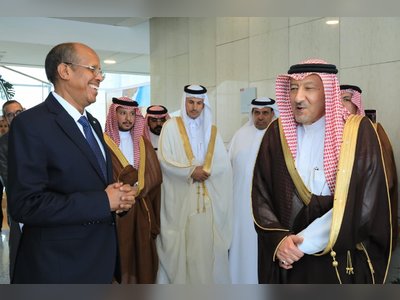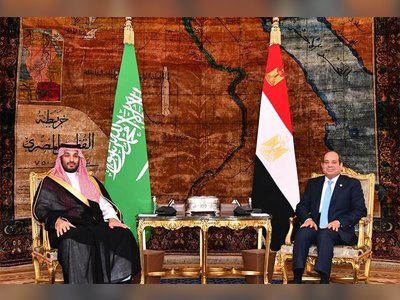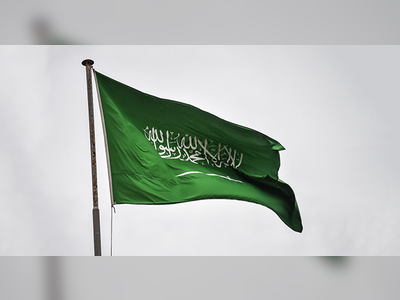
EU Ministers Approve Controversial New Migration and Asylum Rules Amid Election Campaigning
The European Union (EU) endorsed significant reforms to its asylum system on Tuesday, with the approval of 10 legislative parts of The New Pact on Migration and Asylum.
This pact outlines rules for EU member countries to handle unauthorized entrants, from screening and protection qualification to deportation.
Hungary and Poland, who have opposed any obligation to host migrants or pay for their upkeep, voted against the package but were unable to block it.
Mainstream political parties believe this pact resolves the divisive migration issues since the influx of over 1 million migrants into Europe in 2015, primarily fleeing war in Syria and Iraq.
The EU is implementing a new reform package in 2026 to address outdated asylum laws and prevent the far-right from gaining votes in upcoming elections.
However, the rules will not provide an immediate solution to the political crisis over migrant responsibility and obligation to help.
Critics argue that the pact allows for border detention and fingerprinting of children, infringing on asylum rights, and may lead to more unethical deals with poorer countries.
The need for new rules arises from Europe's asylum laws, which have not been updated in about two decades and fell apart in 2015, based on the premise of processing, granting asylum, or deporting migrants in their first point of entry.
The Schengen Area, which allows for border-free travel between 27 European countries, was expanded in 2023 and now includes 400 million Europeans and visitors.
However, the financial burden and public discontent from handling the influx of migrants fell on Greece, Italy, and Malta.
The rules apply to the estimated 300,000 migrants who entered the EU without permission through external borders, such as those arriving by boat in Greece, Italy, or Spain.
The remaining 1 million migrants without permission were those who entered legally but overstayed their visas.
The European Union (EU) system for handling asylum seekers involves border screening for identity and security checks, including for children as young as 6.
The information is stored in a database called Eurodac.
The screening process determines if a person poses a health or security risk and their chances of staying.
Those fleeing conflict, persecution, or violence are likely to be granted asylum, while those seeking jobs may be refused.
The asylum procedure requires applicants to apply in the first EU country they enter and wait for that country to process their application.
The process is mandatory and should be completed within seven days, leading to either an application for international protection or deportation to their home country.
The text discusses the European Union's plan to process asylum applications within 12 weeks, including one legal appeal if denied.
Applicants from certain countries may face faster processing due to historical asylum grant rates.
Critics argue this approach disregards individual assessments and violates asylum law.
During this period, applicants reside in reception centers with access to healthcare and education.
Those whose applications are rejected receive a deportation order, with a subsequent 12-week period to carry out the deportation process.
The EU has implemented new rules to address the issue of migratory pressure on its borders.
These rules obligate countries to provide assistance to EU partners experiencing high migratory inflows, with support taking the form of relocating asylum applicants or providing financial, technical, or logistical assistance.
However, challenges lie ahead, including the question of whether member countries will fully enact the plan and whether the European Commission will enforce the new rules, given its past reluctance to apply existing ones.
Additionally, less than one-third of people issued with orders to leave the EU are actually deported due to a lack of cooperation from their countries of origin.
The EU's border and coast guard agency is helping to organize joint deportation flights.
The European Union's commission is required to submit a Common Implementation Plan by June, outlining how to make the pact operational over the next two years with set targets for the EU and its members.
However, potential challenges may arise as Hungary, a country that has strongly opposed the reforms, assumes the EU's presidency for six months starting in July.
Hungary and Poland, who have opposed any obligation to host migrants or pay for their upkeep, voted against the package but were unable to block it.
Mainstream political parties believe this pact resolves the divisive migration issues since the influx of over 1 million migrants into Europe in 2015, primarily fleeing war in Syria and Iraq.
The EU is implementing a new reform package in 2026 to address outdated asylum laws and prevent the far-right from gaining votes in upcoming elections.
However, the rules will not provide an immediate solution to the political crisis over migrant responsibility and obligation to help.
Critics argue that the pact allows for border detention and fingerprinting of children, infringing on asylum rights, and may lead to more unethical deals with poorer countries.
The need for new rules arises from Europe's asylum laws, which have not been updated in about two decades and fell apart in 2015, based on the premise of processing, granting asylum, or deporting migrants in their first point of entry.
The Schengen Area, which allows for border-free travel between 27 European countries, was expanded in 2023 and now includes 400 million Europeans and visitors.
However, the financial burden and public discontent from handling the influx of migrants fell on Greece, Italy, and Malta.
The rules apply to the estimated 300,000 migrants who entered the EU without permission through external borders, such as those arriving by boat in Greece, Italy, or Spain.
The remaining 1 million migrants without permission were those who entered legally but overstayed their visas.
The European Union (EU) system for handling asylum seekers involves border screening for identity and security checks, including for children as young as 6.
The information is stored in a database called Eurodac.
The screening process determines if a person poses a health or security risk and their chances of staying.
Those fleeing conflict, persecution, or violence are likely to be granted asylum, while those seeking jobs may be refused.
The asylum procedure requires applicants to apply in the first EU country they enter and wait for that country to process their application.
The process is mandatory and should be completed within seven days, leading to either an application for international protection or deportation to their home country.
The text discusses the European Union's plan to process asylum applications within 12 weeks, including one legal appeal if denied.
Applicants from certain countries may face faster processing due to historical asylum grant rates.
Critics argue this approach disregards individual assessments and violates asylum law.
During this period, applicants reside in reception centers with access to healthcare and education.
Those whose applications are rejected receive a deportation order, with a subsequent 12-week period to carry out the deportation process.
The EU has implemented new rules to address the issue of migratory pressure on its borders.
These rules obligate countries to provide assistance to EU partners experiencing high migratory inflows, with support taking the form of relocating asylum applicants or providing financial, technical, or logistical assistance.
However, challenges lie ahead, including the question of whether member countries will fully enact the plan and whether the European Commission will enforce the new rules, given its past reluctance to apply existing ones.
Additionally, less than one-third of people issued with orders to leave the EU are actually deported due to a lack of cooperation from their countries of origin.
The EU's border and coast guard agency is helping to organize joint deportation flights.
The European Union's commission is required to submit a Common Implementation Plan by June, outlining how to make the pact operational over the next two years with set targets for the EU and its members.
However, potential challenges may arise as Hungary, a country that has strongly opposed the reforms, assumes the EU's presidency for six months starting in July.
Translation:
•
Translated by AI











